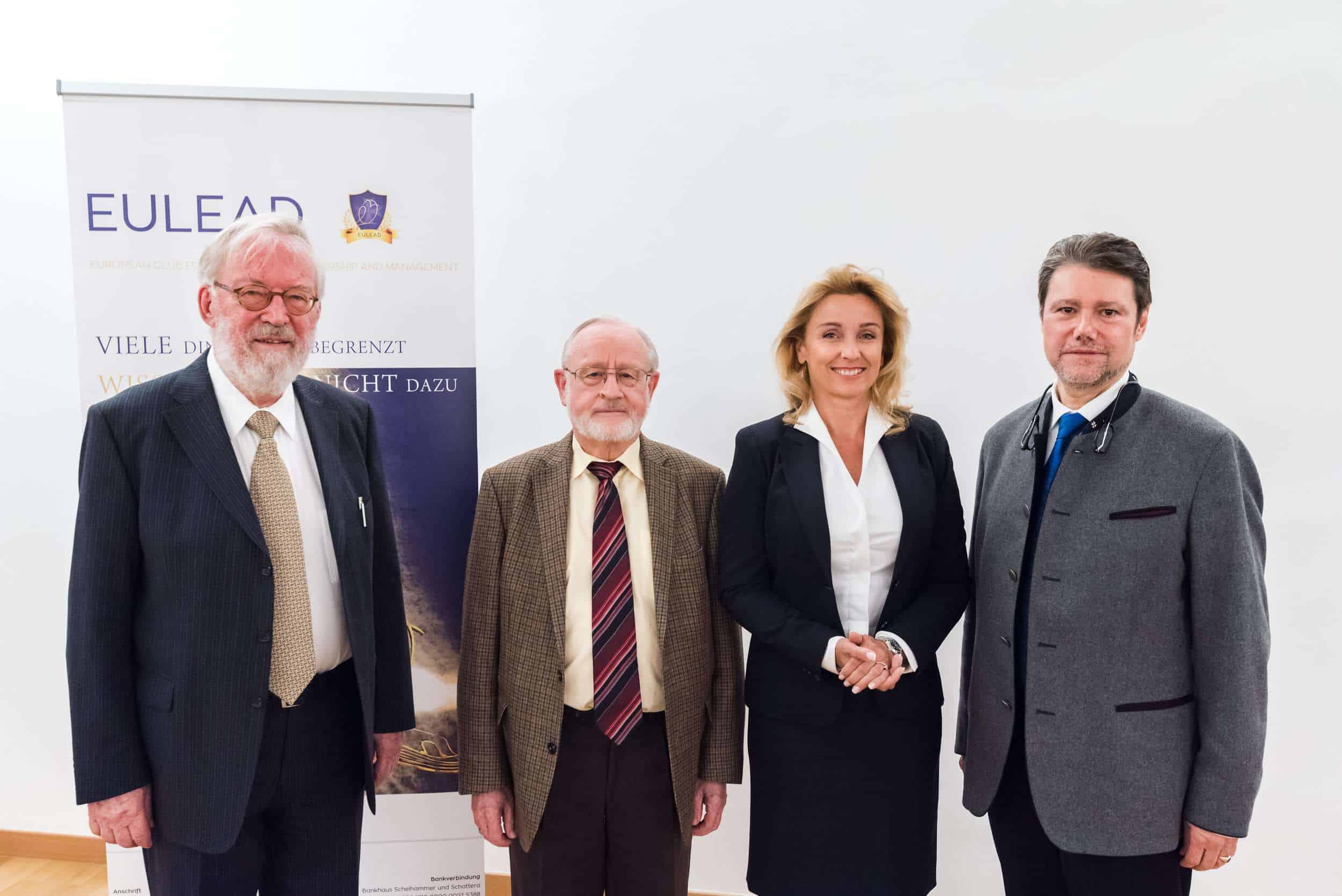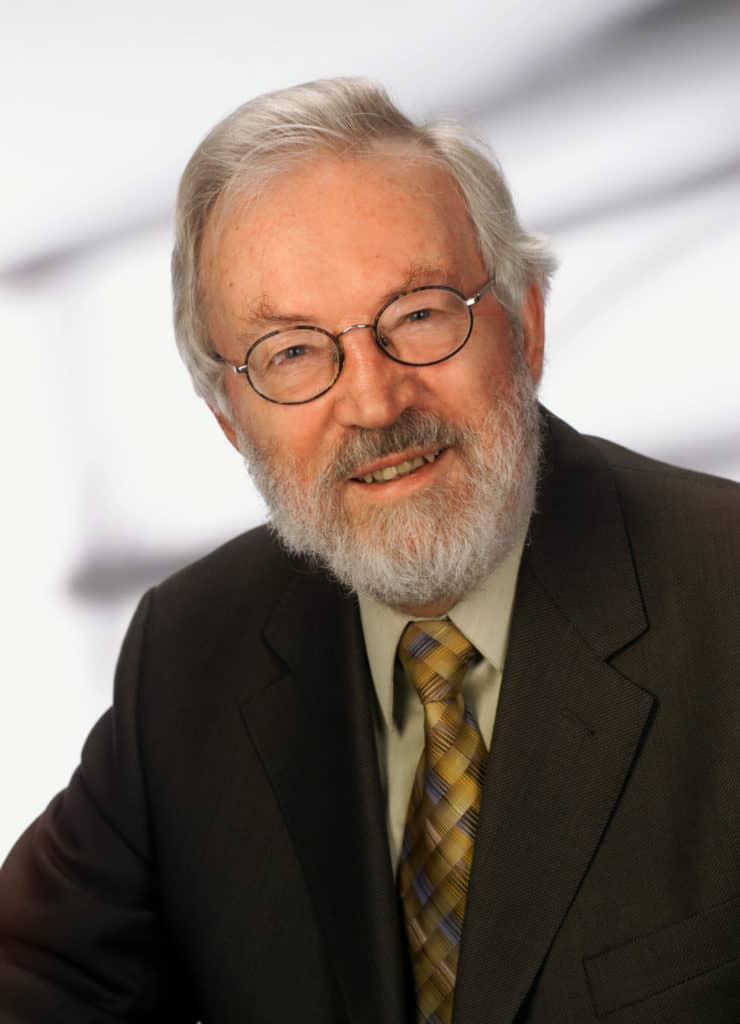
"Rethinking Leadership Concepts - Quantum Mechanics vs. Management"
We discussed the nature of such perspectives on March 21, 2019 – as part of our first EULEAD Salon with Prof. Herbert Pietschmann.
The first possible approach to problems is the path of analysis. This means that complicated facts are broken down into their individual parts until one has reached a level where the situation has become so simple that one can find a cause for the problem (e.g. by counting, measuring and weighing) and Ideally, a solution can also be found.
This approach describes that of mechanistic thinking. He uses the tools of science. Anyone who chooses this path will find themselves in the best of company: Galileo Galilei claimed to measure everything that can be measured. The French scientist and philosopher René Descartes, famous to this day for his theorem "Cogito Ergo Sum", called for problems to be broken down into as many parts as necessary in order to solve them more easily. Isaac Newton was looking for the causes of facts and Aristotle asked questions that could be answered with an either - or. This mechanistic worldview has triumphed over the centuries, especially in the western world.
However, a widespread demand for mechanical models as a prerequisite for being able to understand the world (such as Lord Kelvin demanded) was put to a certain halt by quantum physics. According to Pietschmann, quantum physics has shown that there is no reduction to an either-or. Light, for example, is both: waves and Particles, not just one of them. Even a mechanistic model of an atom, as many of us were still taught in schools, is untenable from today's perspective. According to Pietschmann, there is also “objective coincidence”, i.e. no causality for individual events. Above all, however, quantum physics has shown one thing: that the whole is often no more than the sum of its parts, but – if you follow the findings of quantum physics – something simply different.
With these considerations and insights - according to Pietschmann - the approaches of the modern mechanistic worldview and its description of nature are already outdated.
Accordingly, Kitaro Nishida, founder of the Kyoto School of Philosophy, conceives of reality as a unity containing contradiction within itself. According to Pietschmann, one must be able to deal with this kind of contradictions (aporias). They are necessary for the successful handling of problems and conflicts. So while the mechanism offers answers in the sense of an either/or, a constructivist world view demands a healthy degree of tolerance for ambiguity.
Thoughts on the dialectical process and making decisions rounded off this lecture with a quote from Wolfgang Pauli.
"In my view there is but a narrow path of truth between the Scylla of a blue haze of mysticism and the Charybdis of sterile rationalism. This path will always be full of traps and you can fall in either direction.”

Prof. Pietschmann is a physicist, mathematician and philosopher. He conducts research in the fields of quantum mechanics and the physics of subatomic particles. Prof. Pietschmann is a corresponding member of the Austrian Academy of Sciences and the Vienna International Academy for Holistic Medicine, a member of the New York Academy of Science and a fellow of the World Innovation Foundation. Other main areas of work and interest are in the areas of management training, holistic medicine and classical music.
This lecture was part of the series of events “Owlead salon“ from the European Club of Excellence in Leadership and Management. The focus of this format is the exchange with established executives and outstanding personalities from Austrian and international business and politics. The thematic focus is the development of skills in the areas of management and leadership (or leadership). We offer our guests exciting discussions and exchanges on current issues in the fields of management and business.
INQUIRIES:
If you have any questions about this series of events, please contact a member of the board dr Judith Girschik gladly available.

Esteemed Eulead Team,
I congratulate you on your Eulead Salon today with Prof.Dr. Pietschman.
It was an exciting and inspiring evening at a high level.
Best Regards
Gerald Knor
Dear Doctor. knur,
Thank you for your comment and the kind words. We would be delighted to welcome you to one of our upcoming events.
Best Regards,
Your EULEAD team